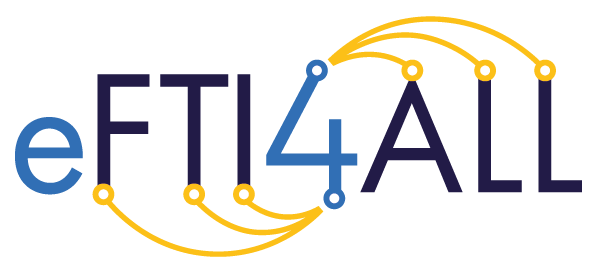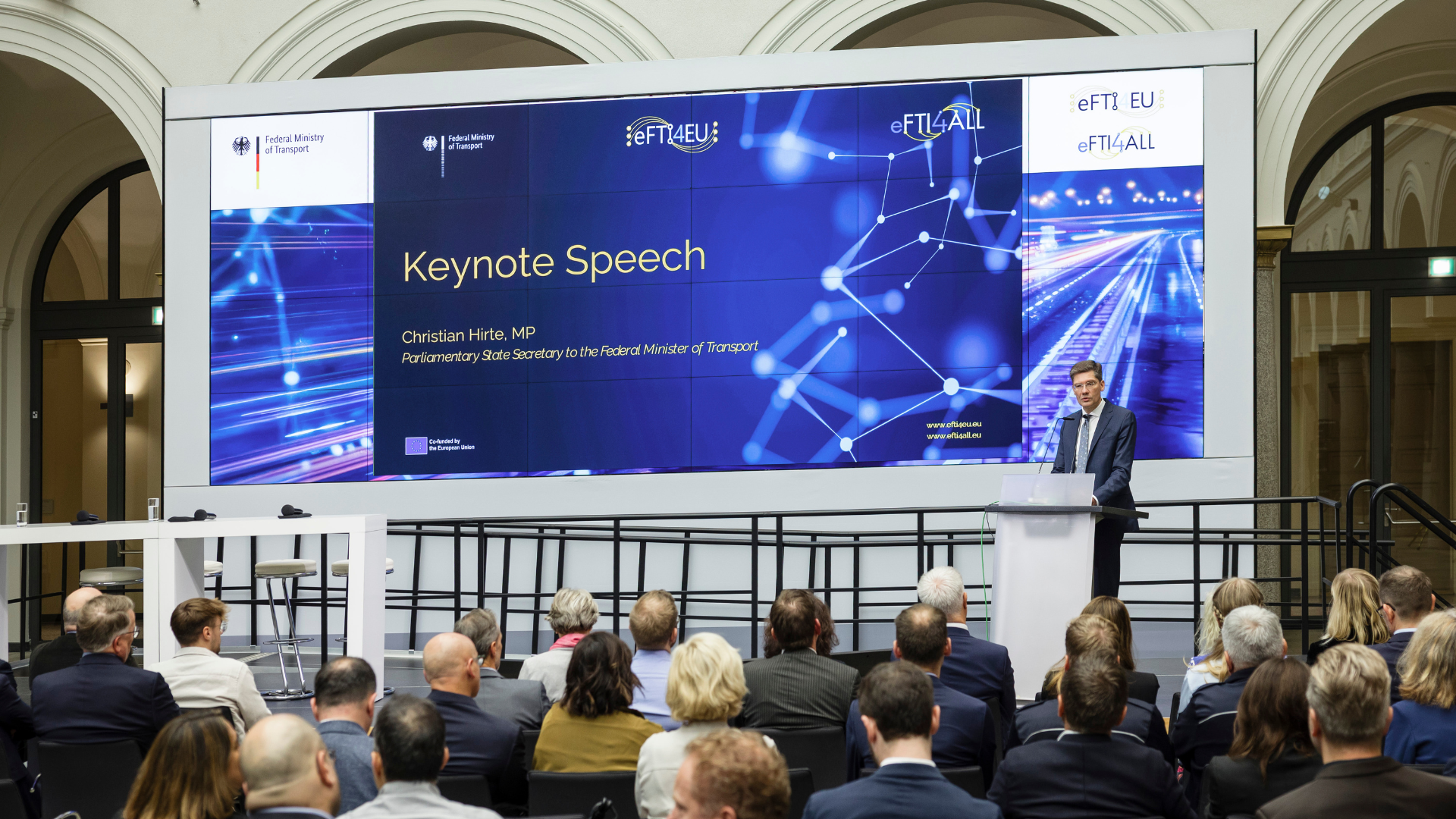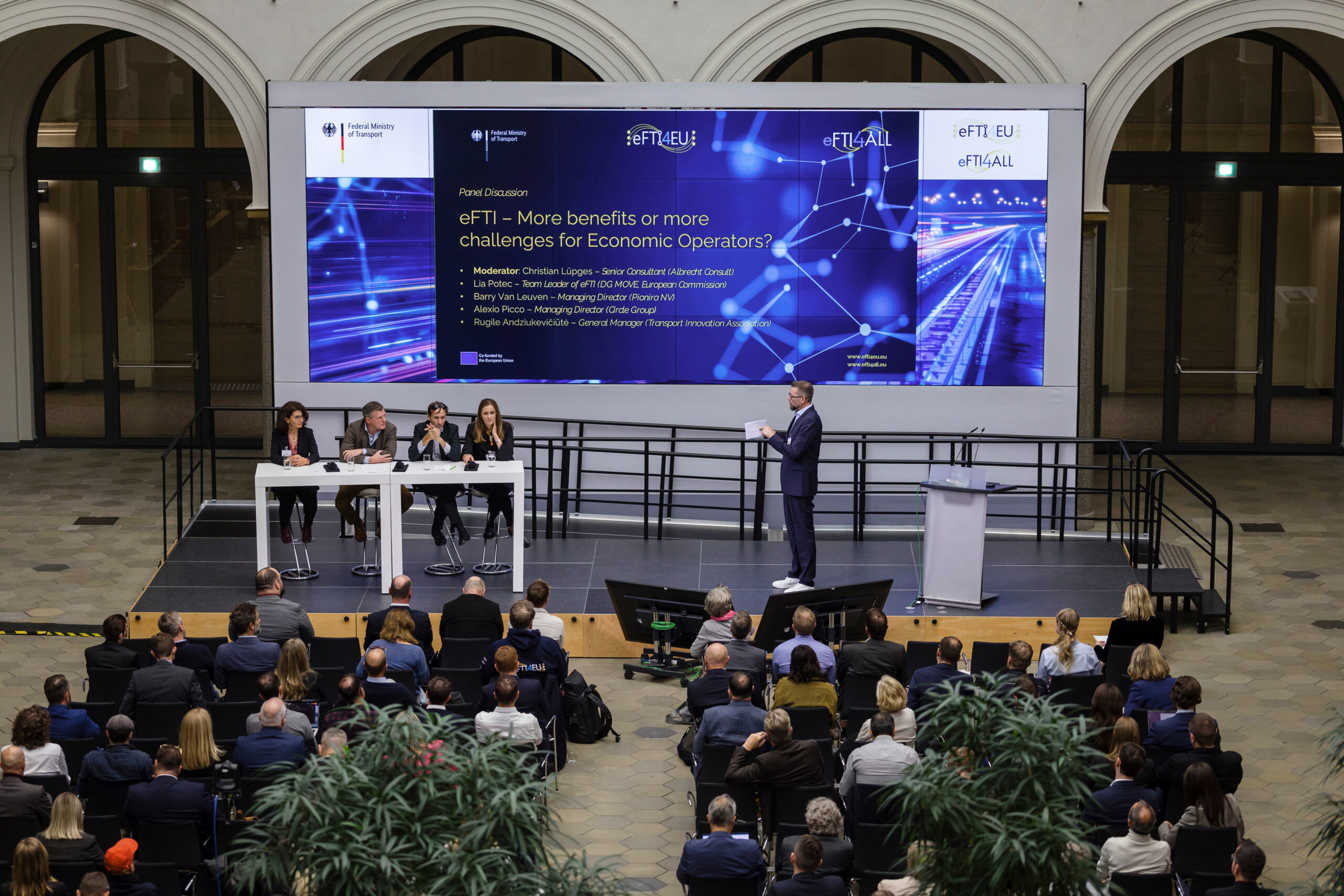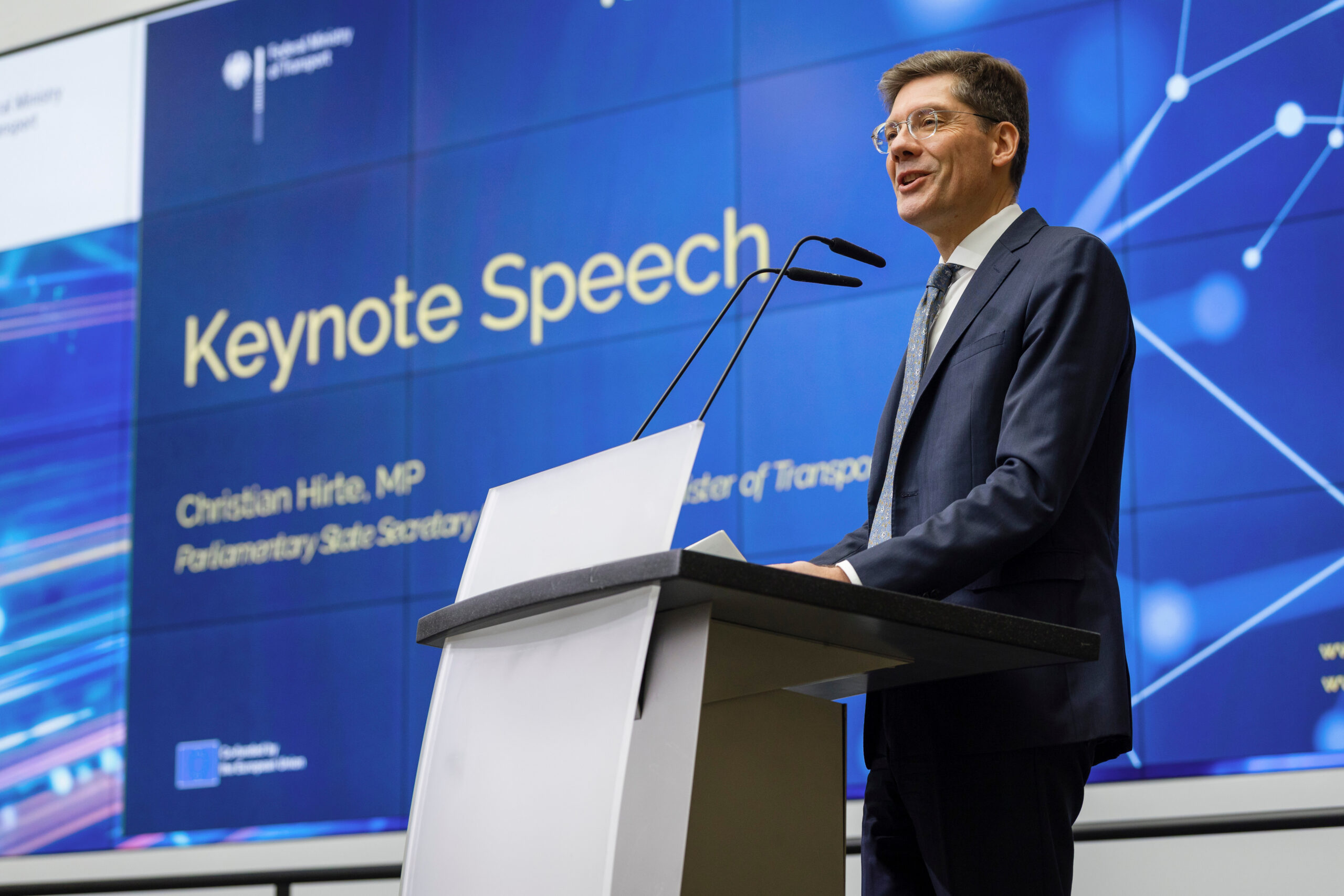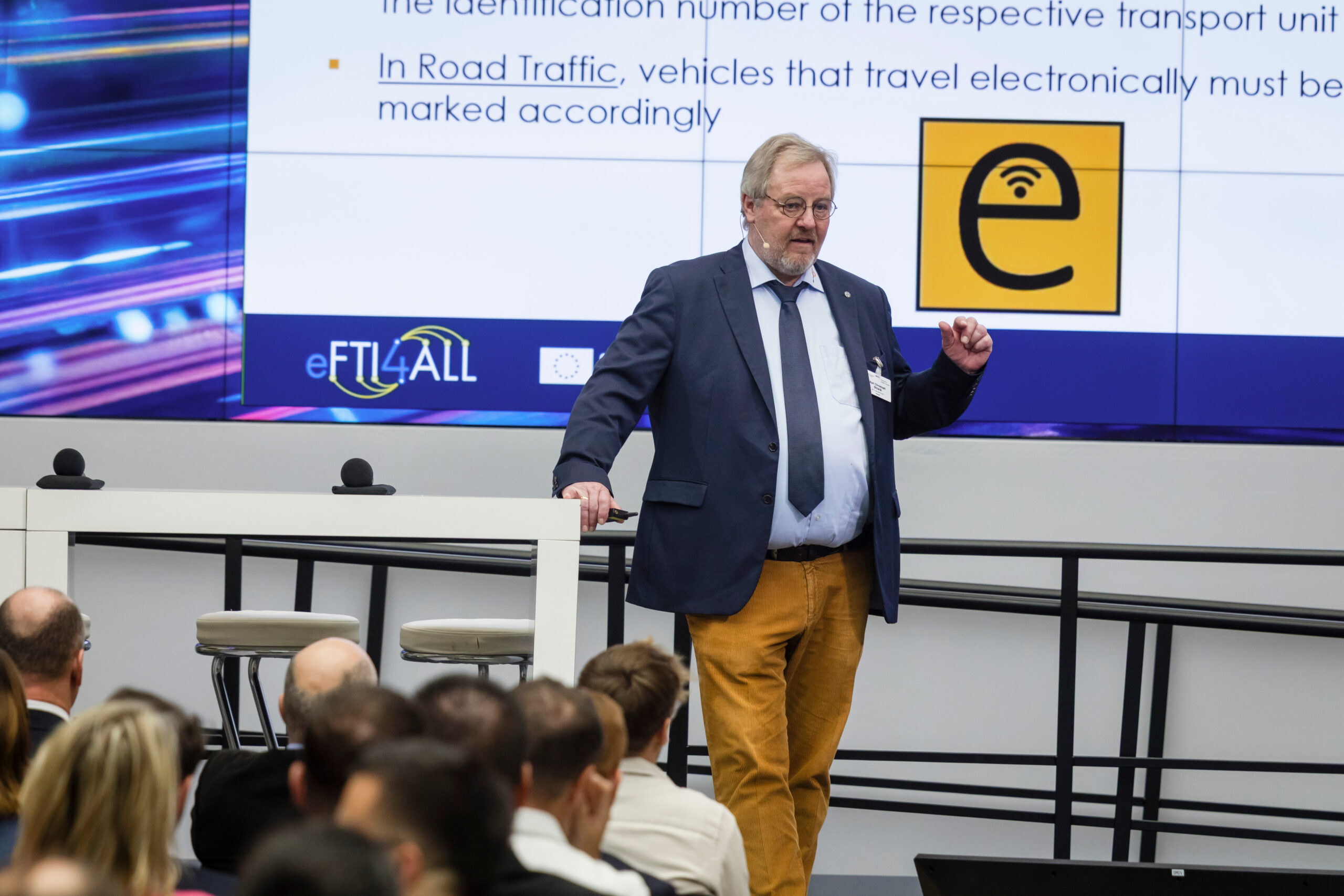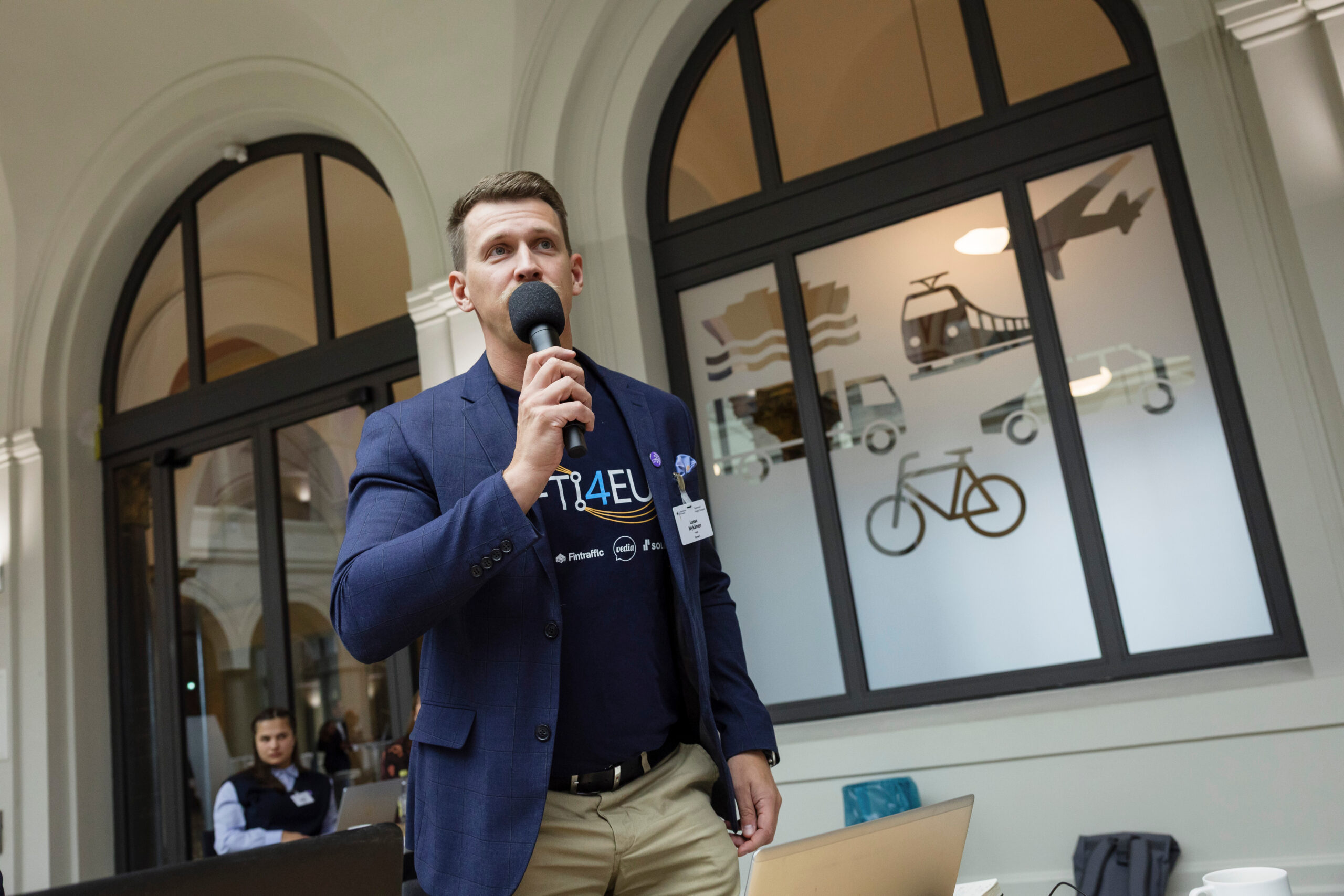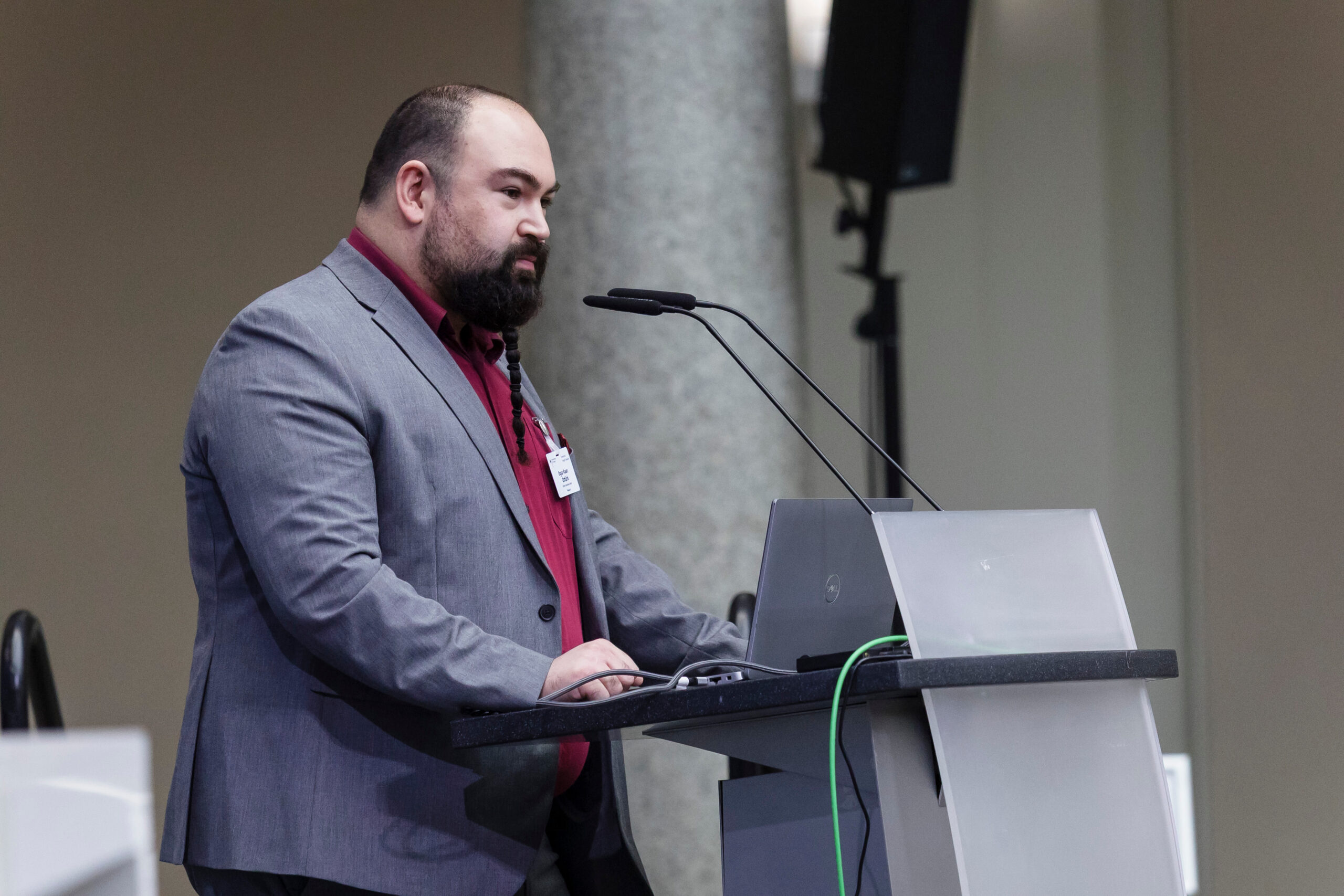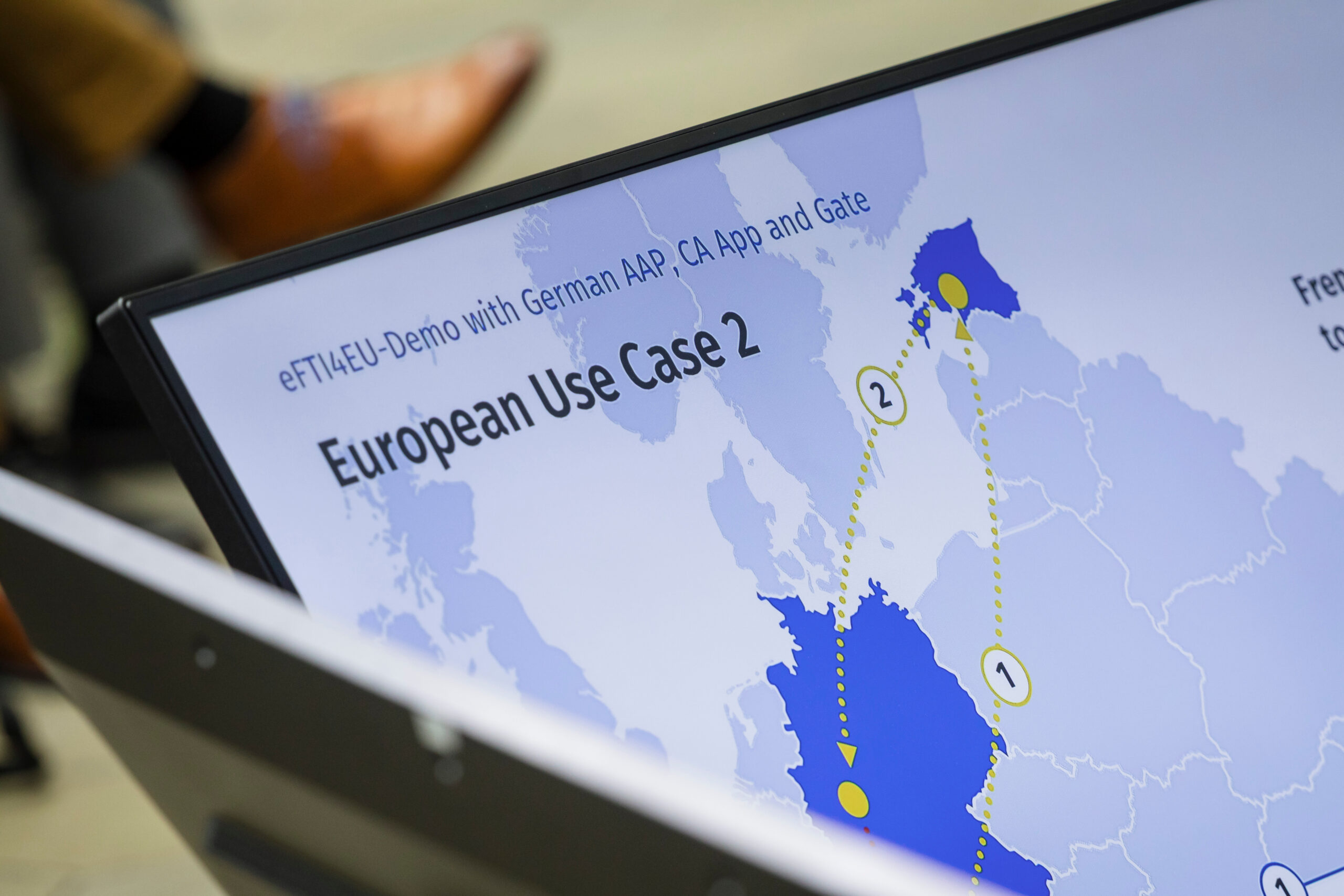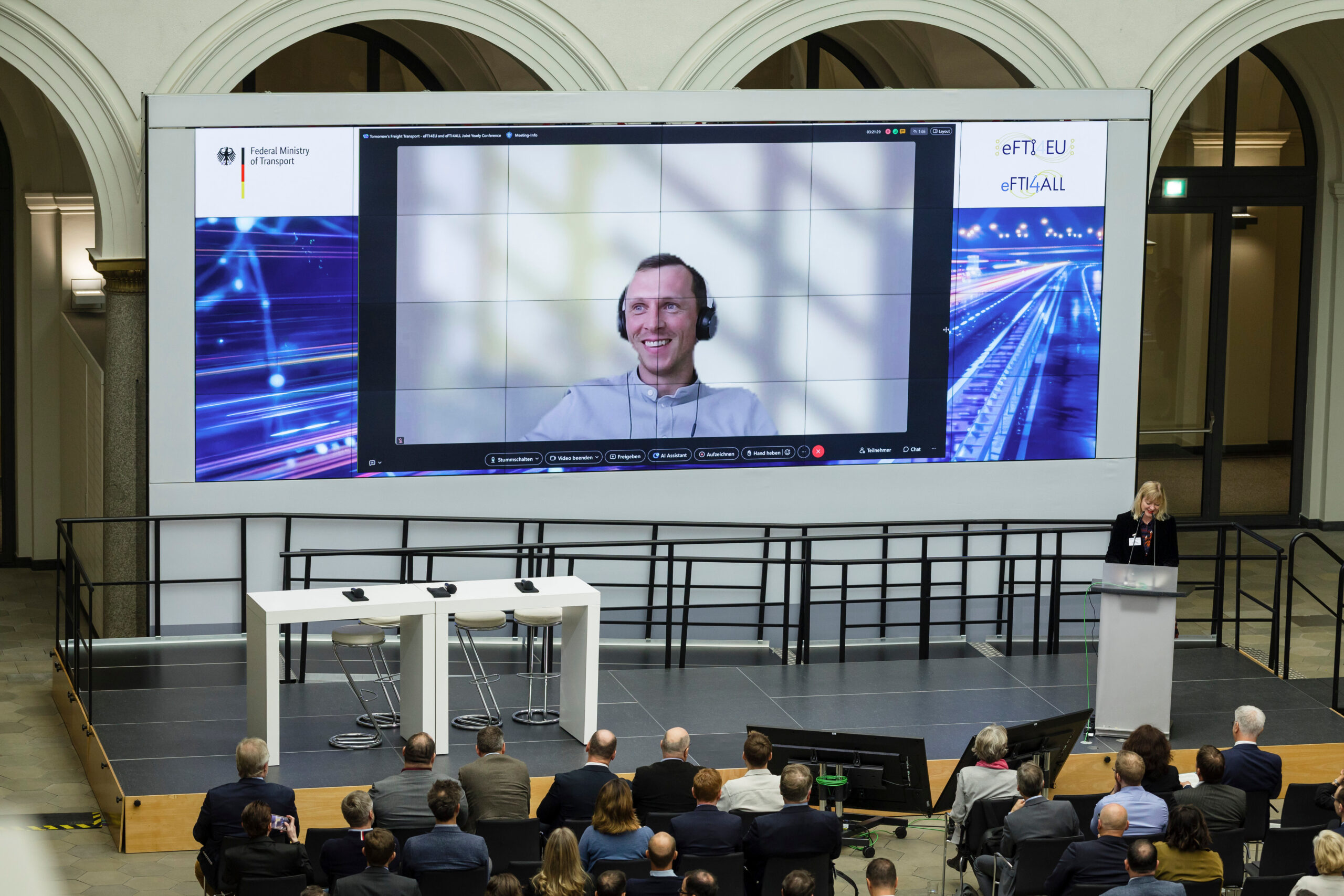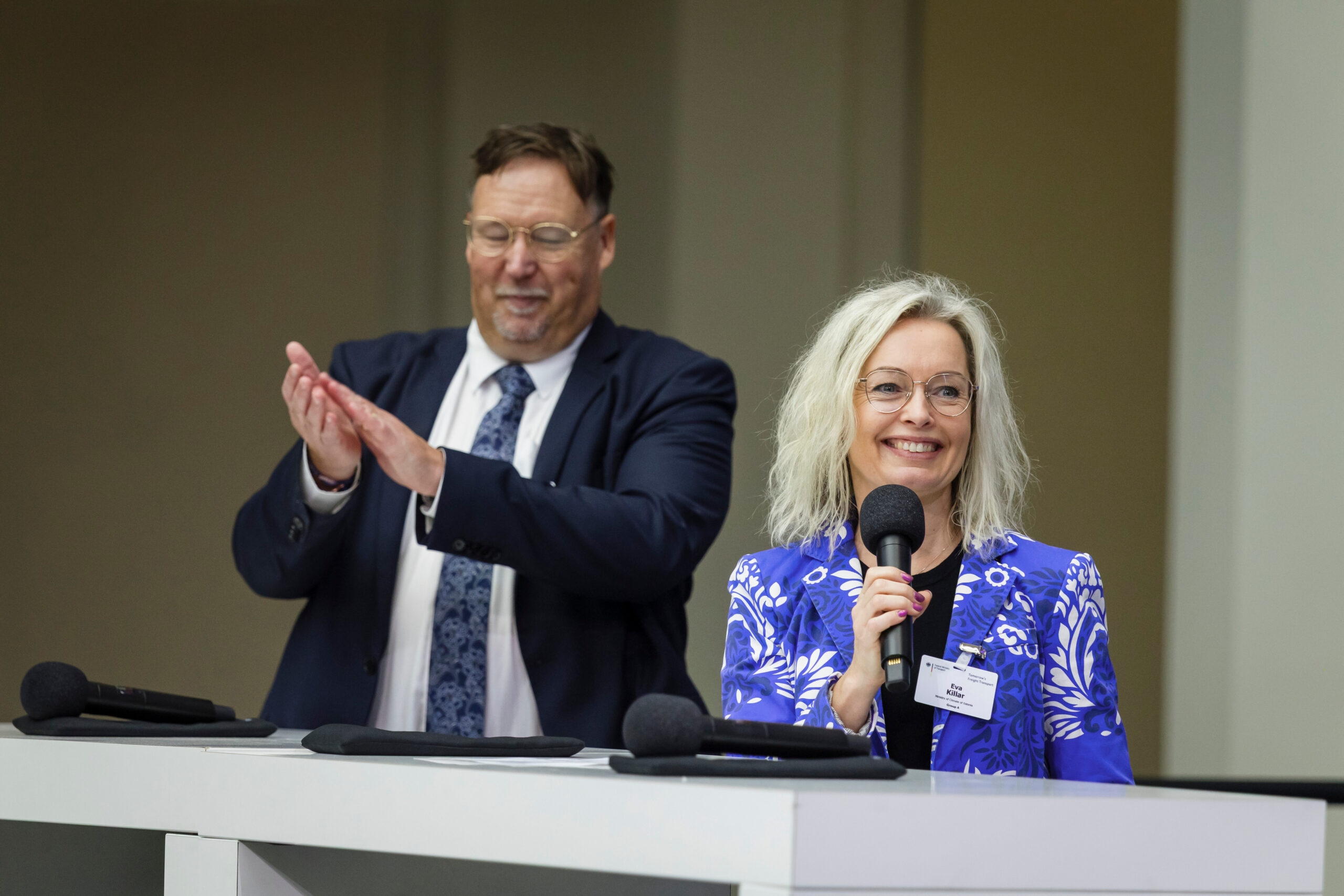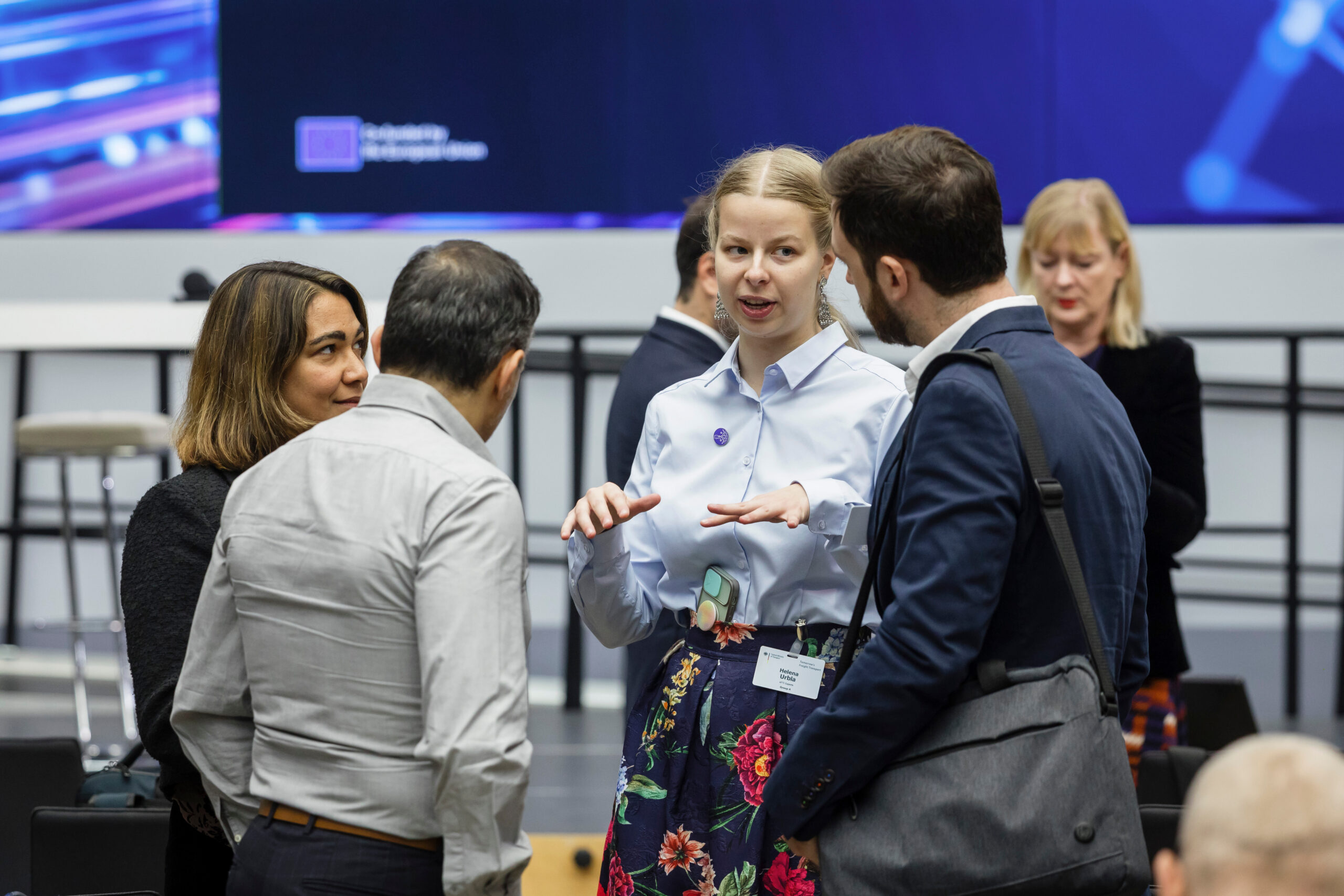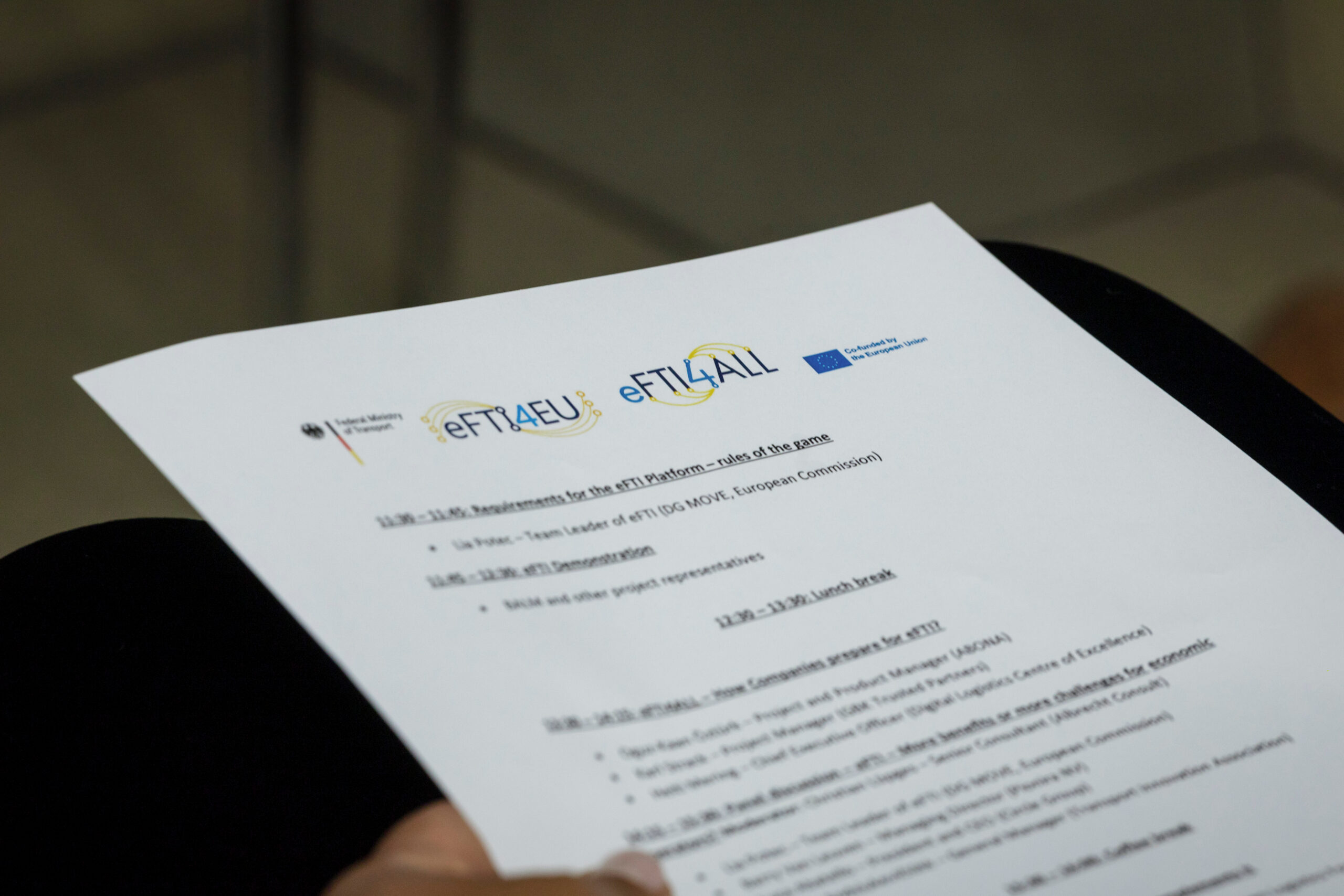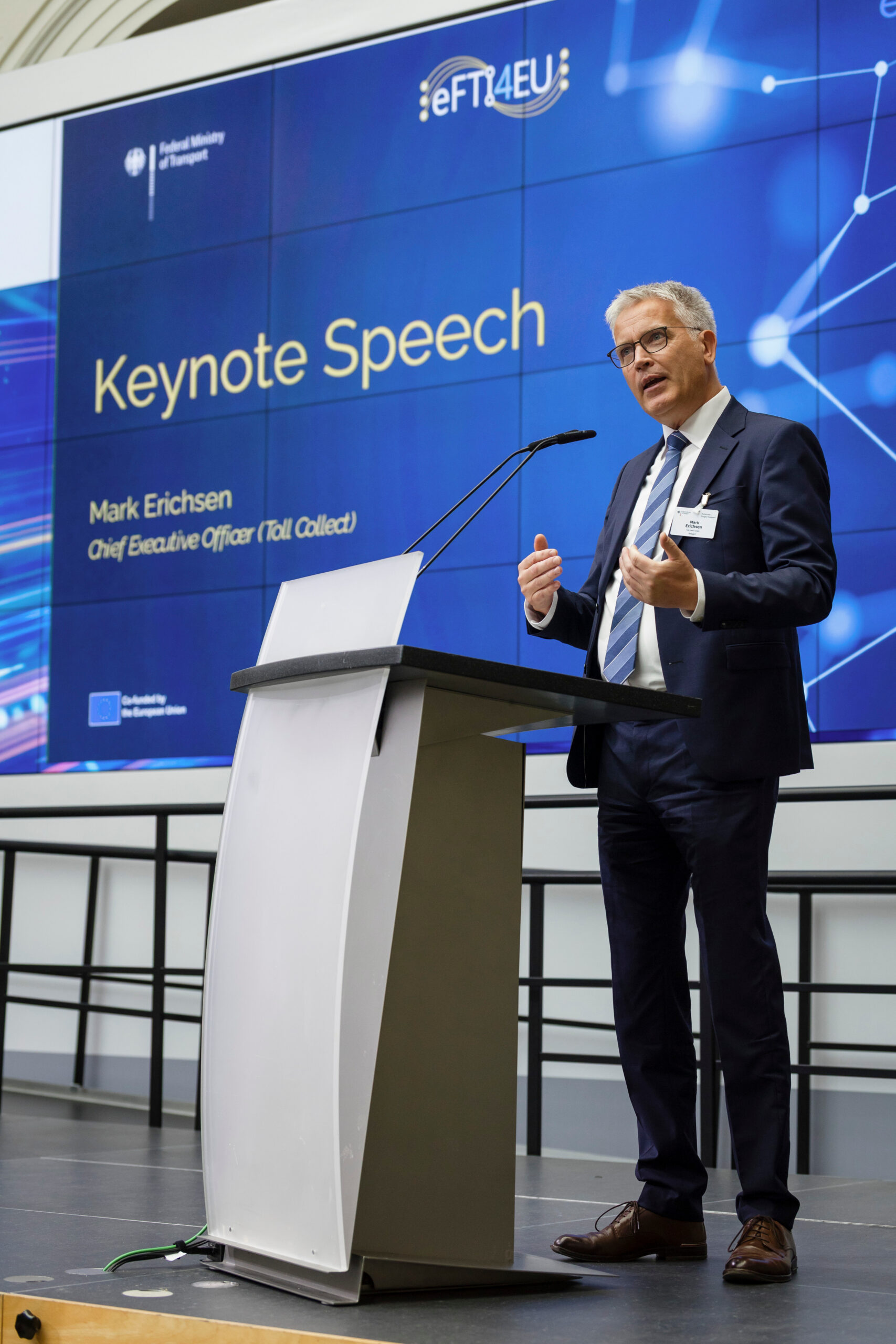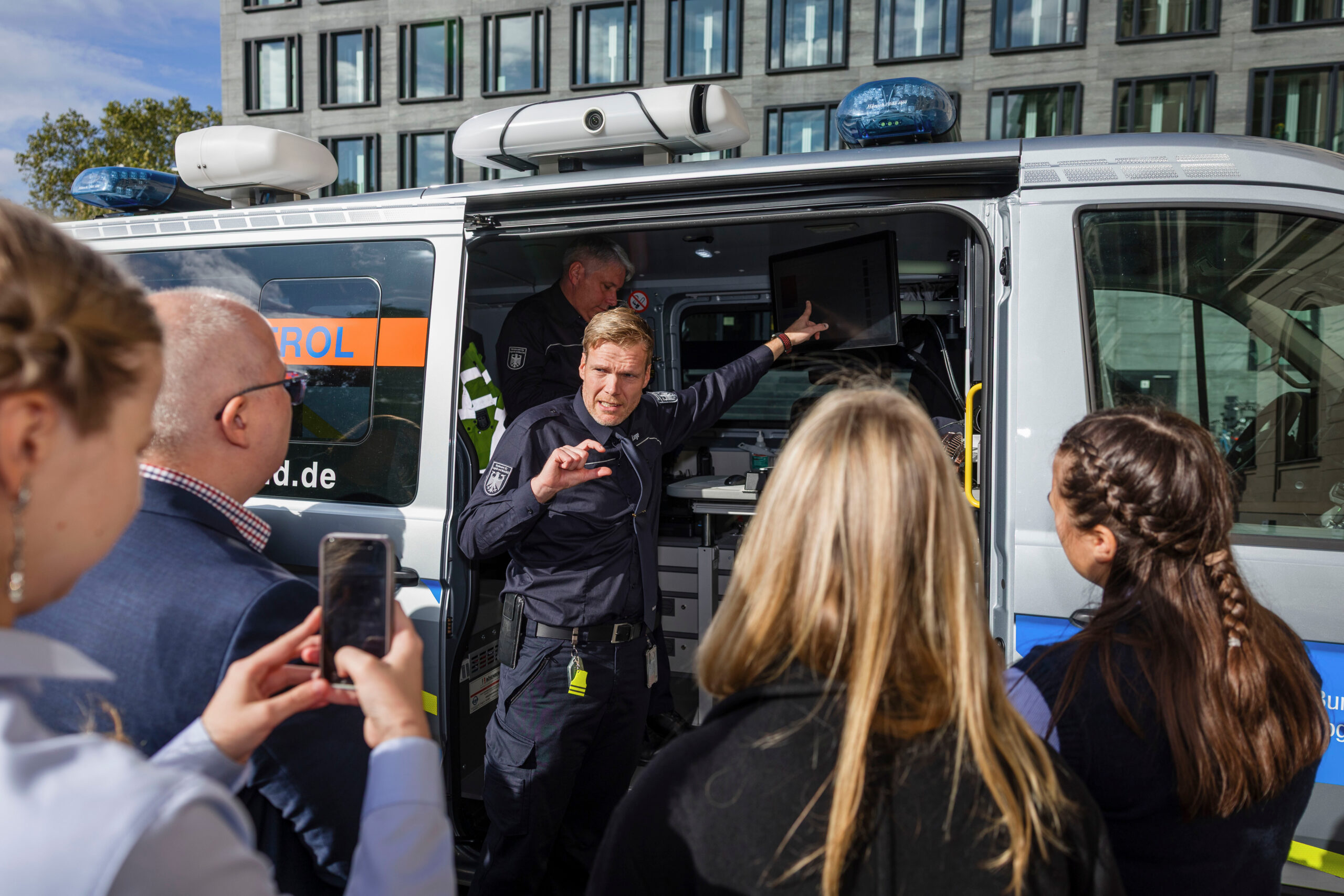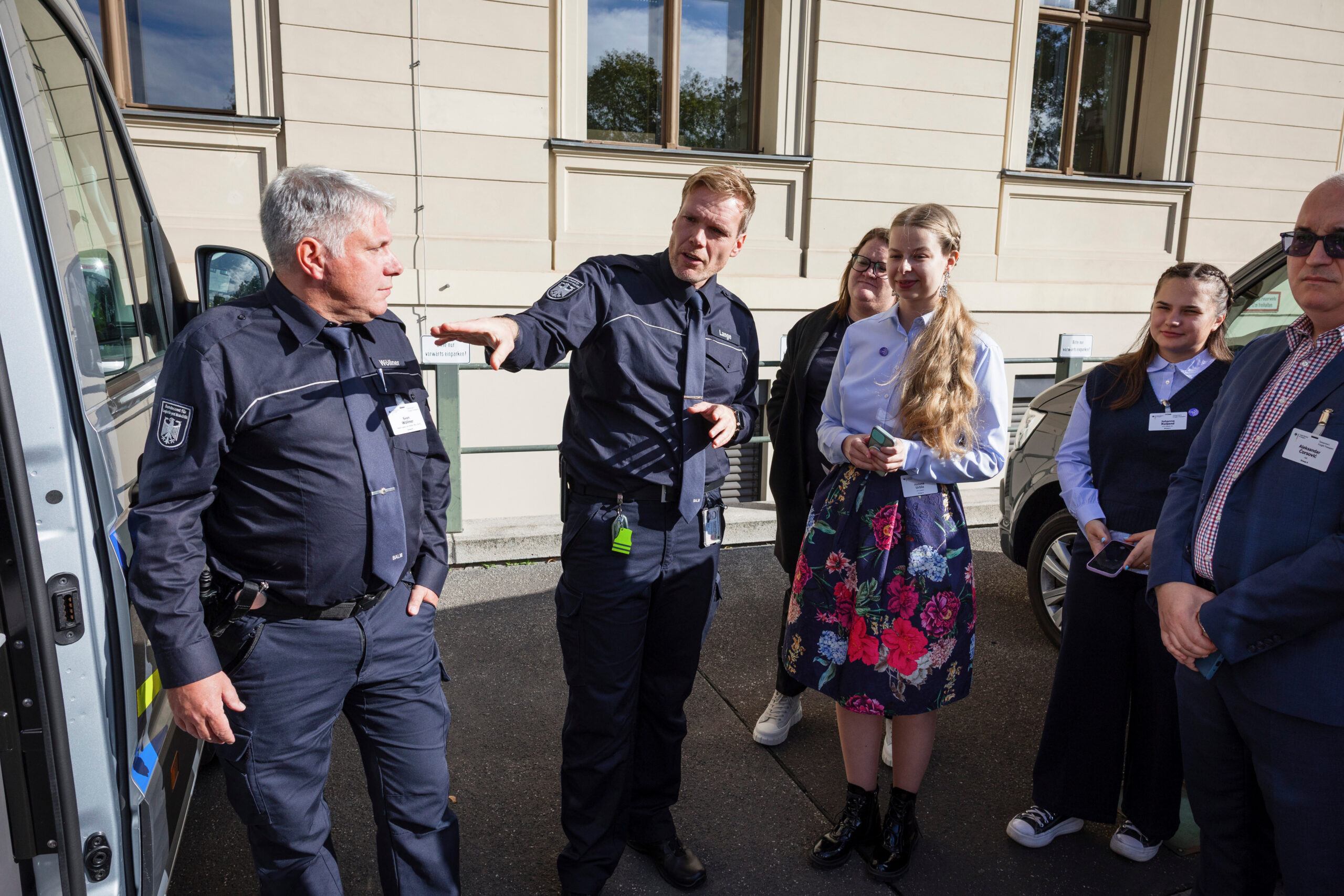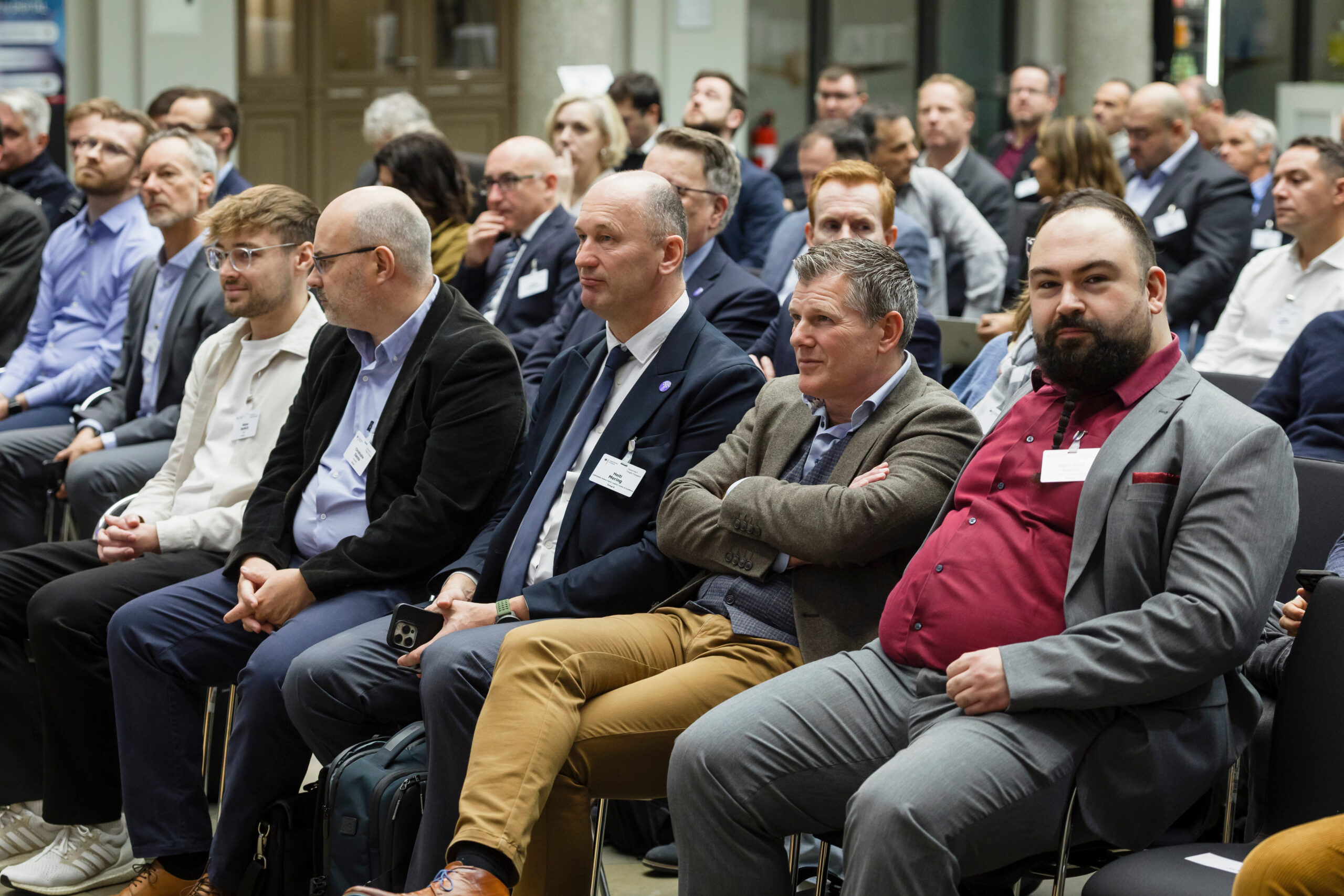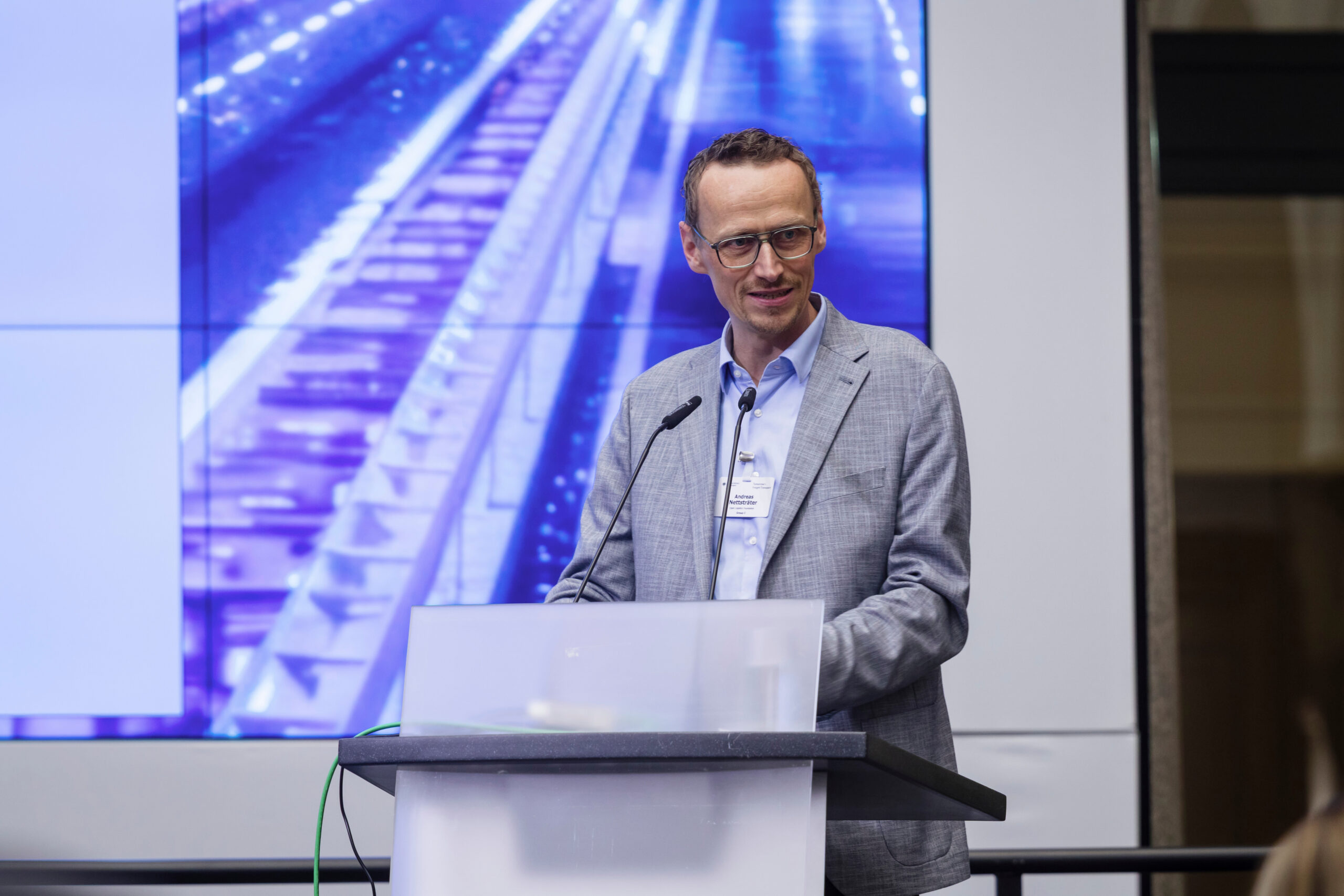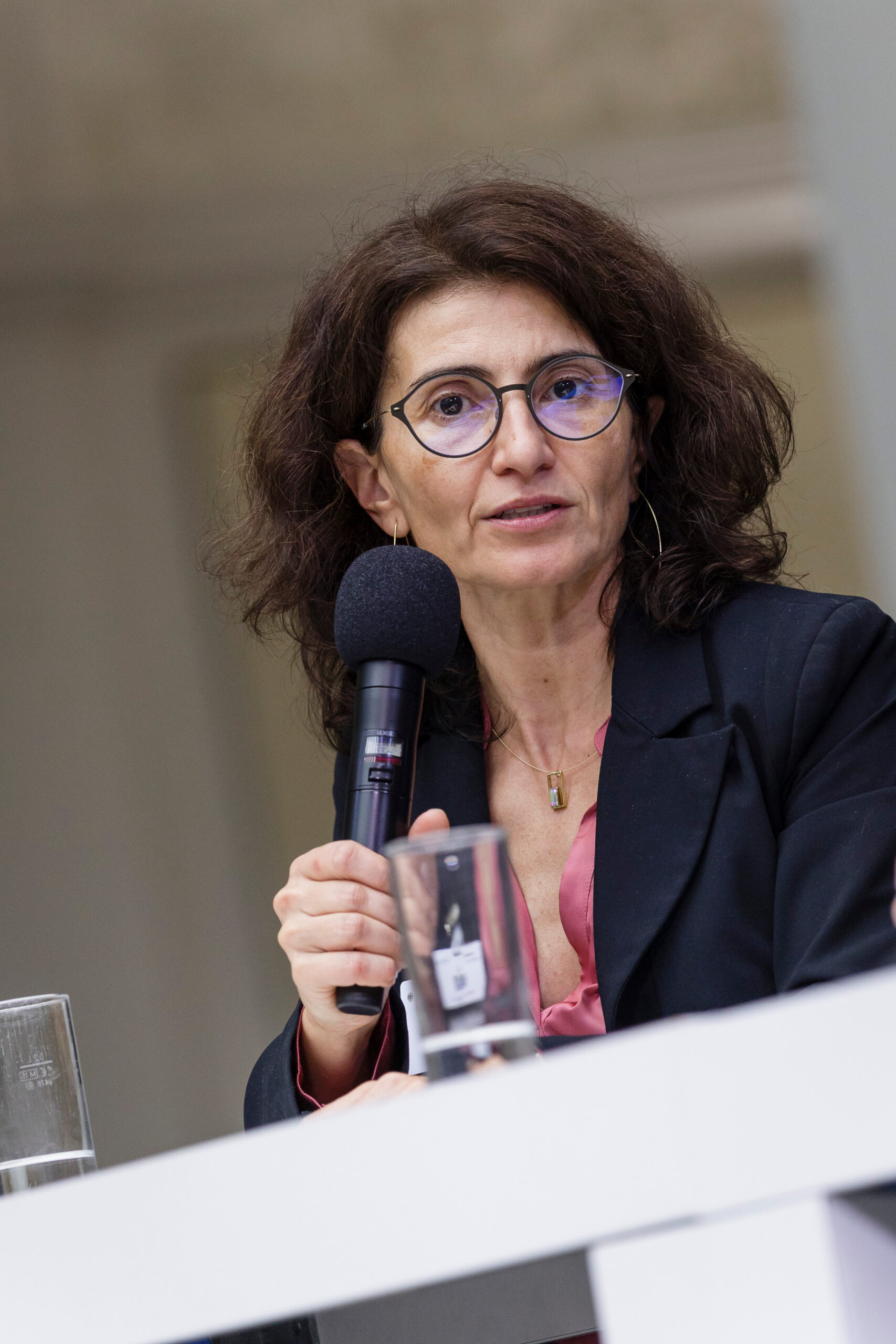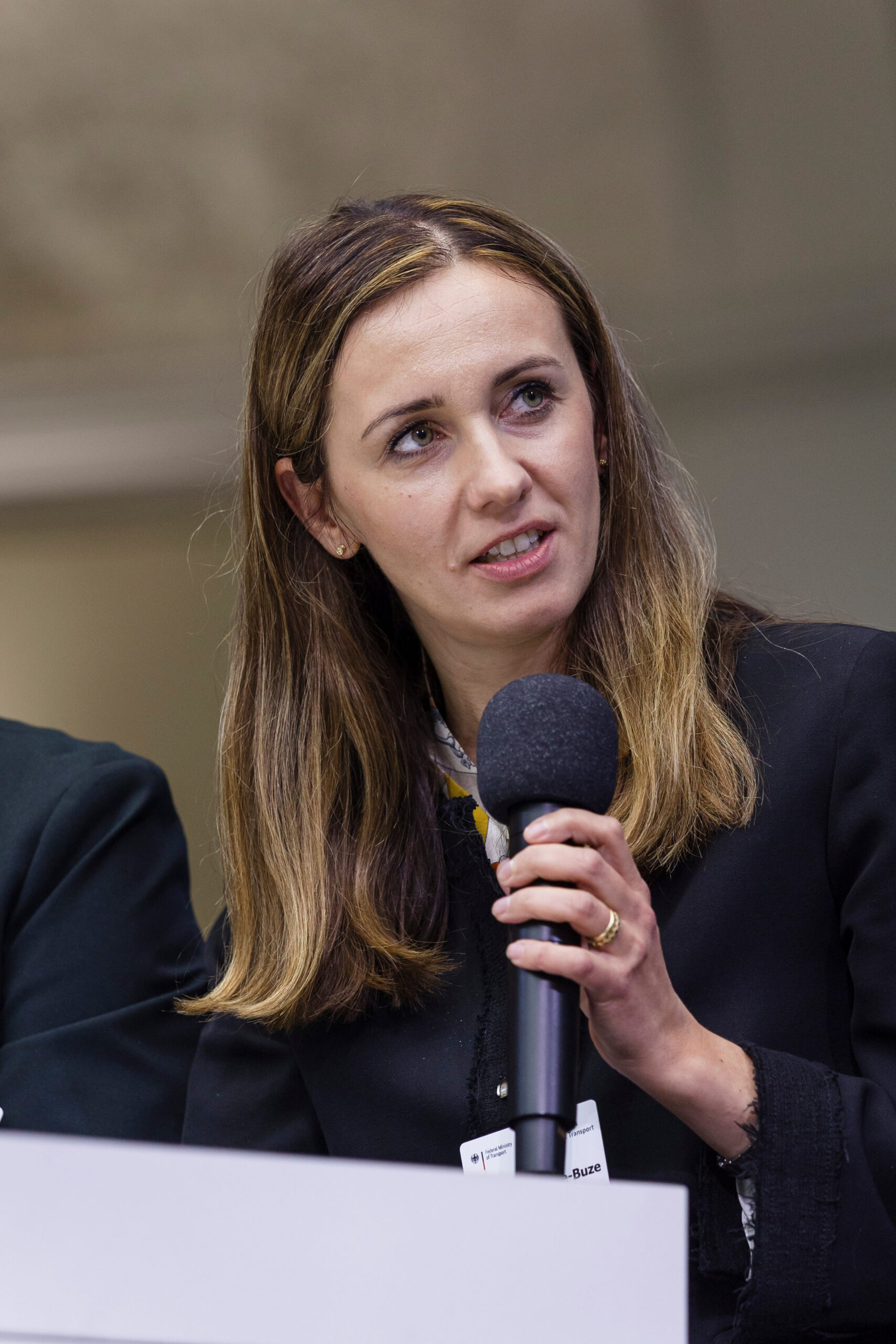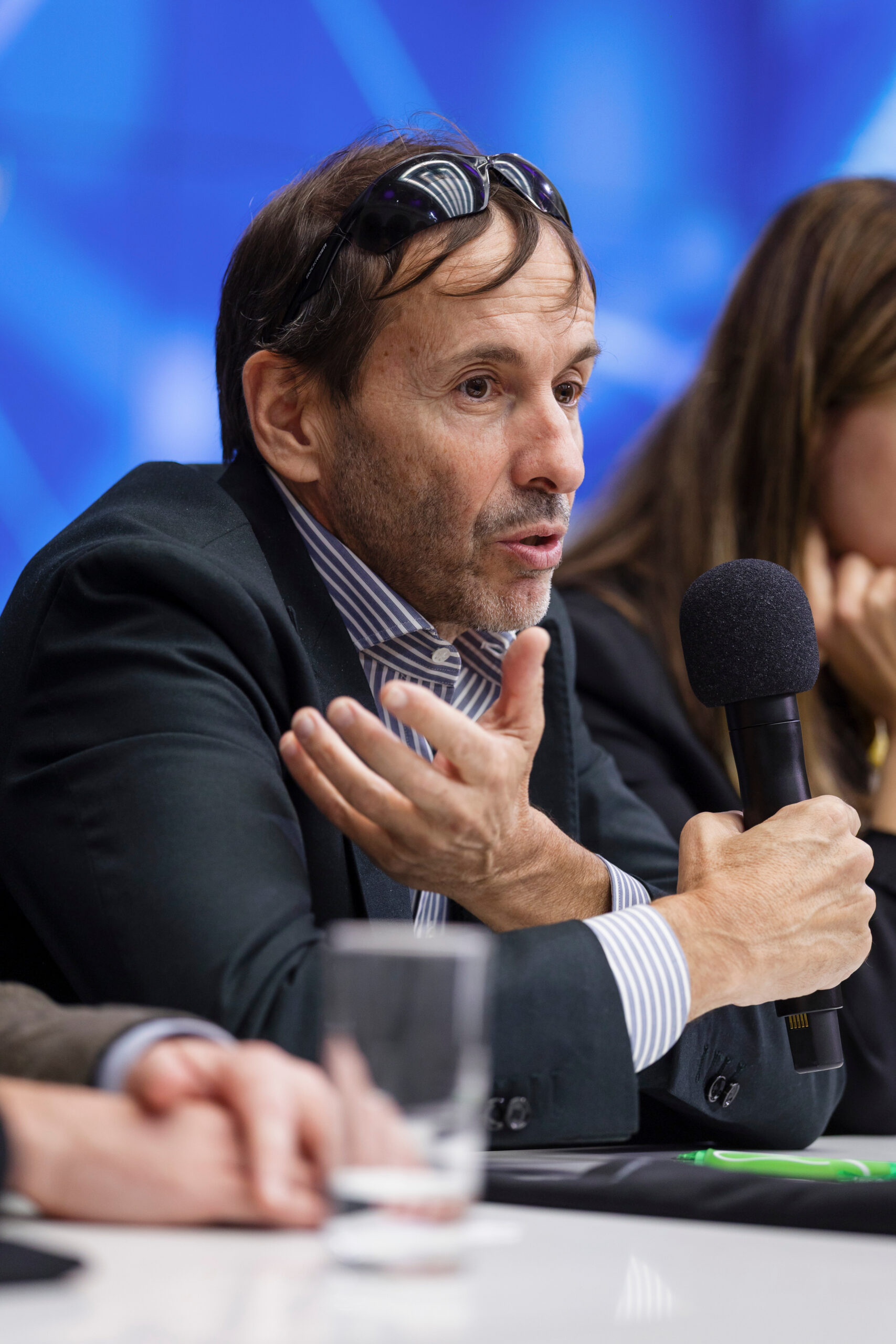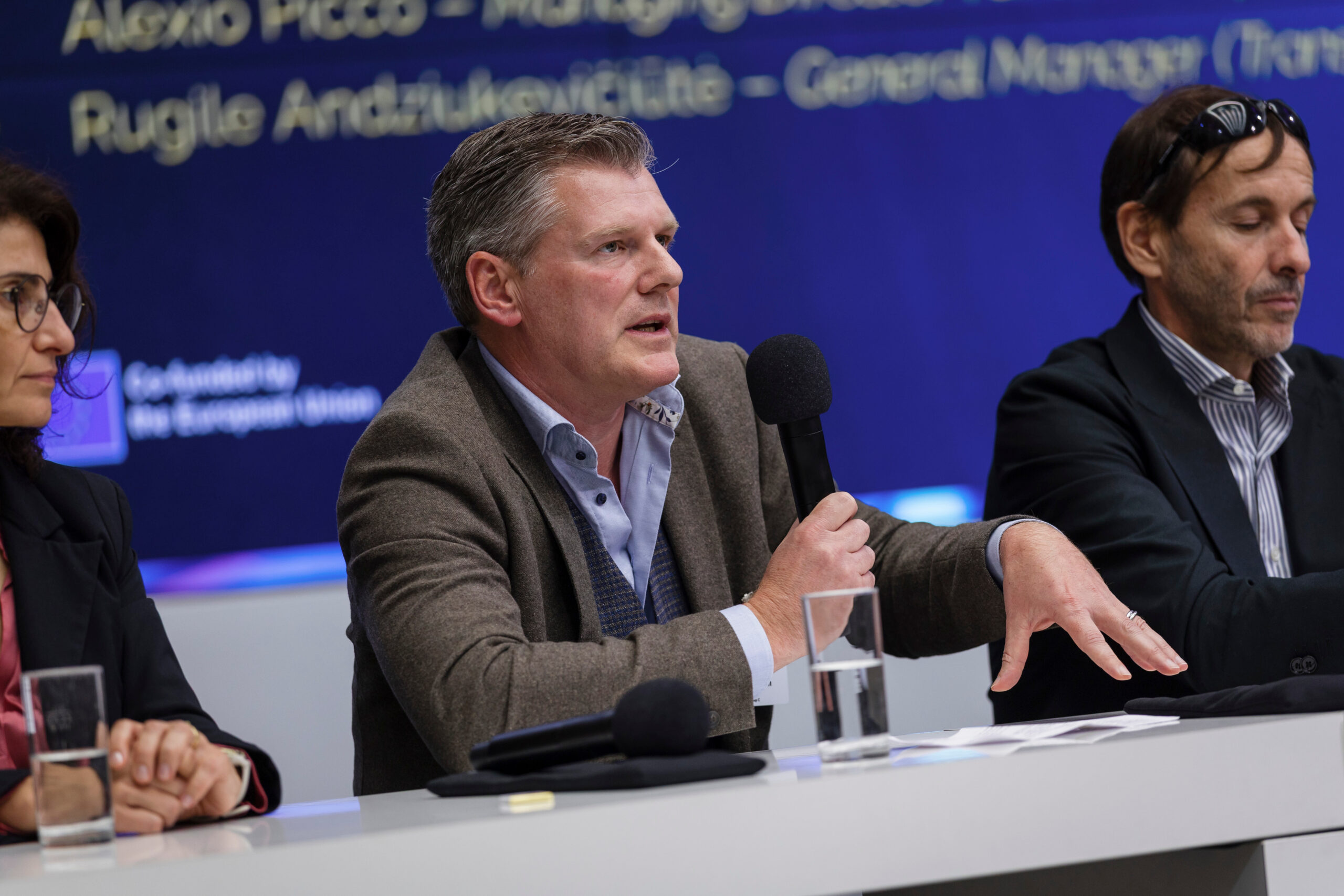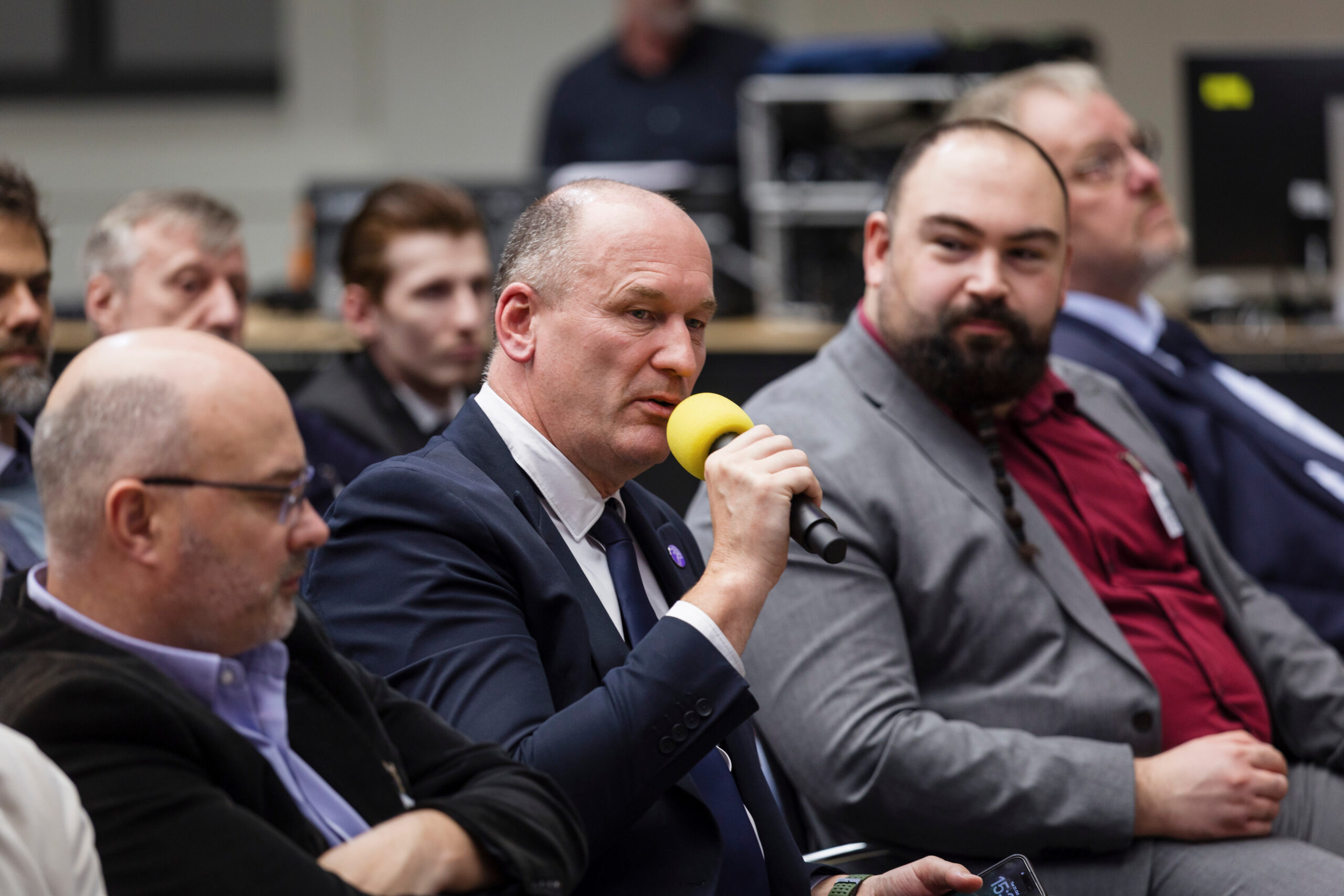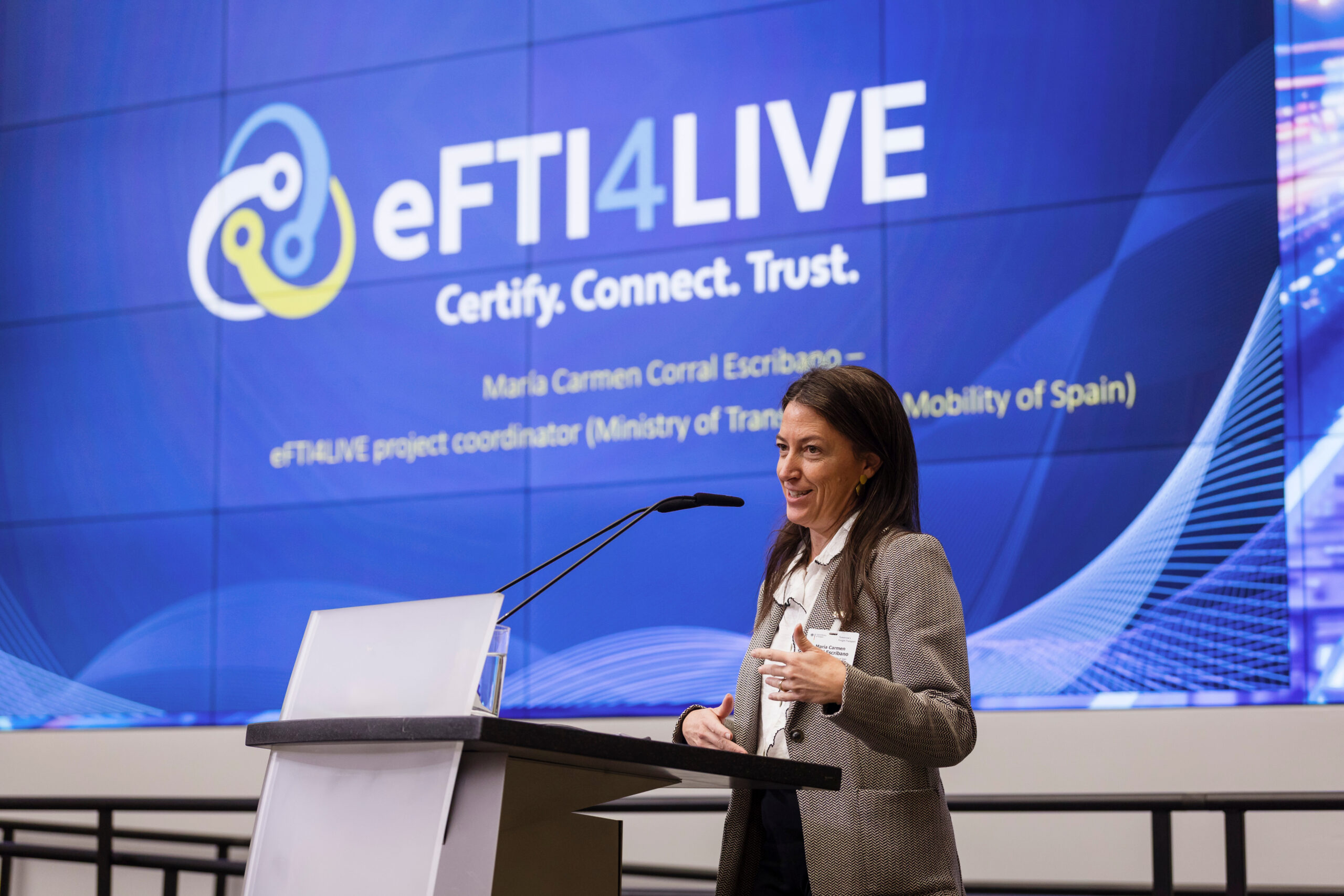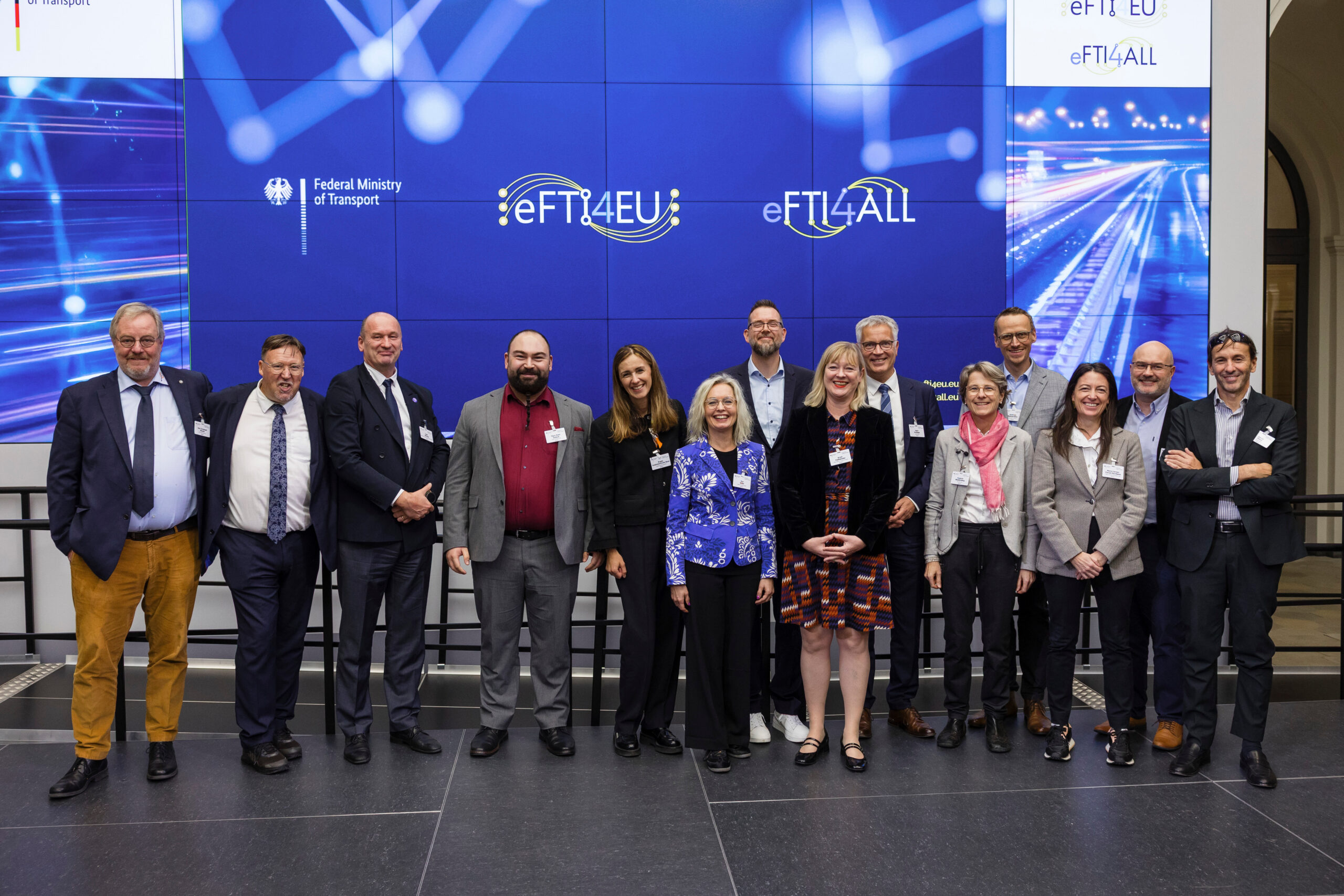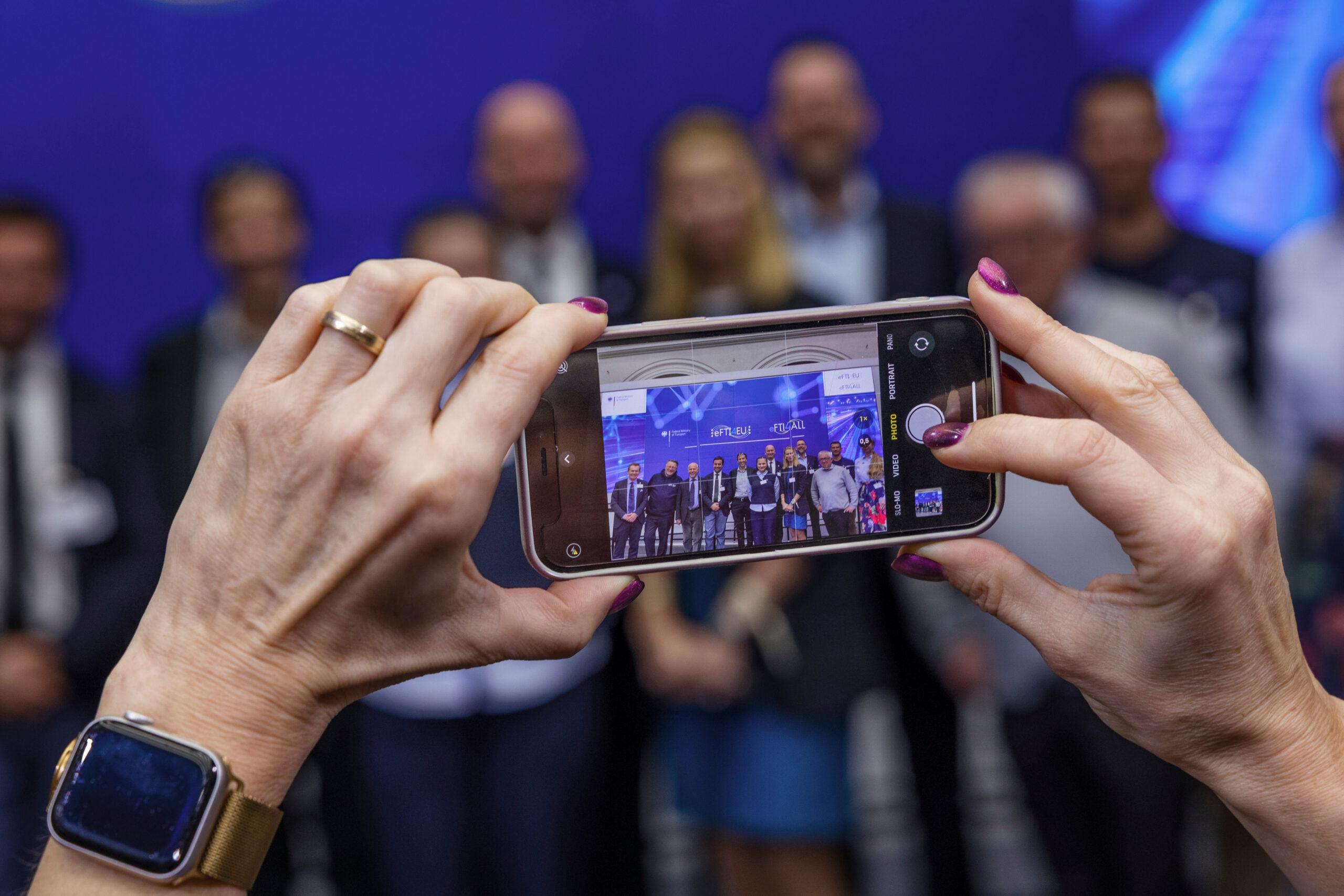On October 21, 2025, the German Federal Ministry of Transport hosted “Tomorrow’s Freight Transport“ Conference in Berlin—the annual event gathering members of the eFTI4ALL and eFTI4EU initiatives.
The day-long event brought together over 300 people from 41 countries, joining both on-site and remotely, including transport operators, technology providers, EU decision-makers, and national authorities. The conference served as a forum to discuss how digitalisation and the eFTI Regulation are reshaping freight logistics across Europe and beyond.
Building Cooperation for a digitally connected freight sector
Kicking off the event, Mr. Christian Hirte, Parliamentary State Secretary at the German Federal Ministry of Transport, highlighted that the future of European transport “will be digitally connected,” with eFTI playing a central role in boosting efficiency, sustainability, and simplification.
Magda Kopczyńska, Director-General of DG MOVE, followed by emphasizing the critical role of collaboration among Member States, authorities, and industry to accelerate eFTI adoption Europe-wide: “Digitalisation in transport must be viewed comprehensively to attract new users and workers to the logistics sector.” Also Toll Collect CEO Mark Erichsen affirmed this point, stating: “Successful eFTI implementation depends on effective cooperation between the public and private sectors.”
From the European Commission, Lia Potec, Team Leader for eFTI at DG MOVE, presented forthcoming milestones and new technical support tools to assist Member States and operators in preparation for the July 2027 compliance deadline.
Live demos and Private sector in the spotlight
A standout moment was the live demonstration of the German eFTI Gate by Toll Collect, Federal Office for Mobility and Logistics (BALM), IN Groupe, and GBK Trusted Partner, showcasing a simulated real-time customs inspection based on eFTI data. After the lunh break, the attention shifted to private sector innovations with companies like ABONA and GBK Trusted Partner, unveiling their eFTI-compliant digital solutions. Furthermore, Heiti Mering (CEO, Digital Logistics Centre of Excellence) shared progress on pilot projects testing system interoperability across borders and authorities.
Another great moment of interest was represented by the panel discussion, moderated by Christian Lüpges from Albrecht Consult, who examined the practical implications of eFTI adoption from economic operators’ viewpoints. Representatives from Circle Group, PIONIRA NV, and the Transport Innovation Association voiced the necessity of trust, cooperation, and awareness-raising to drive widespread digital uptake.
To complement the afternoon session, Andreas Nettsträter (Open Logistics Foundation) delivered a session on how eFTI and e-CMR complement one another via harmonisation and open data standards — a vital step towards fully integrated, paperless logistics across Europe.
Last but not least, the event also formally introduced to the audience the eFTI4LIVE Project, a new initiative coordinated by the Spanish Ministry of Transport and Mobility, aiming to advance certification, governance, interoperability, and rollout strategies in the expanding eFTI ecosystem.
A successful event for a growing eFTI community
Looking forward, the conference underscored that eFTI is transitioning from concept to execution. With the July 9 2027 compliance deadline fast approaching, collaboration between national regulators, EU bodies, and industry is crucial for a smooth, joint rollout of the Regulation. Testing, interoperability, and strong stakeholder engagement remain key to successfully digitising European freight transport.
The eFTI4ALL Consortium warmly thanks the participants, the speakers and the colleagues from eFTI4EU consortium for the for the positive outcome of the event. In particular, a heartfelt thank you to the German Federal Ministry of Transport for hosting the 2025 conference in Berlin.
Photos © Dirk Michael Deckbar. All rights reserved.
